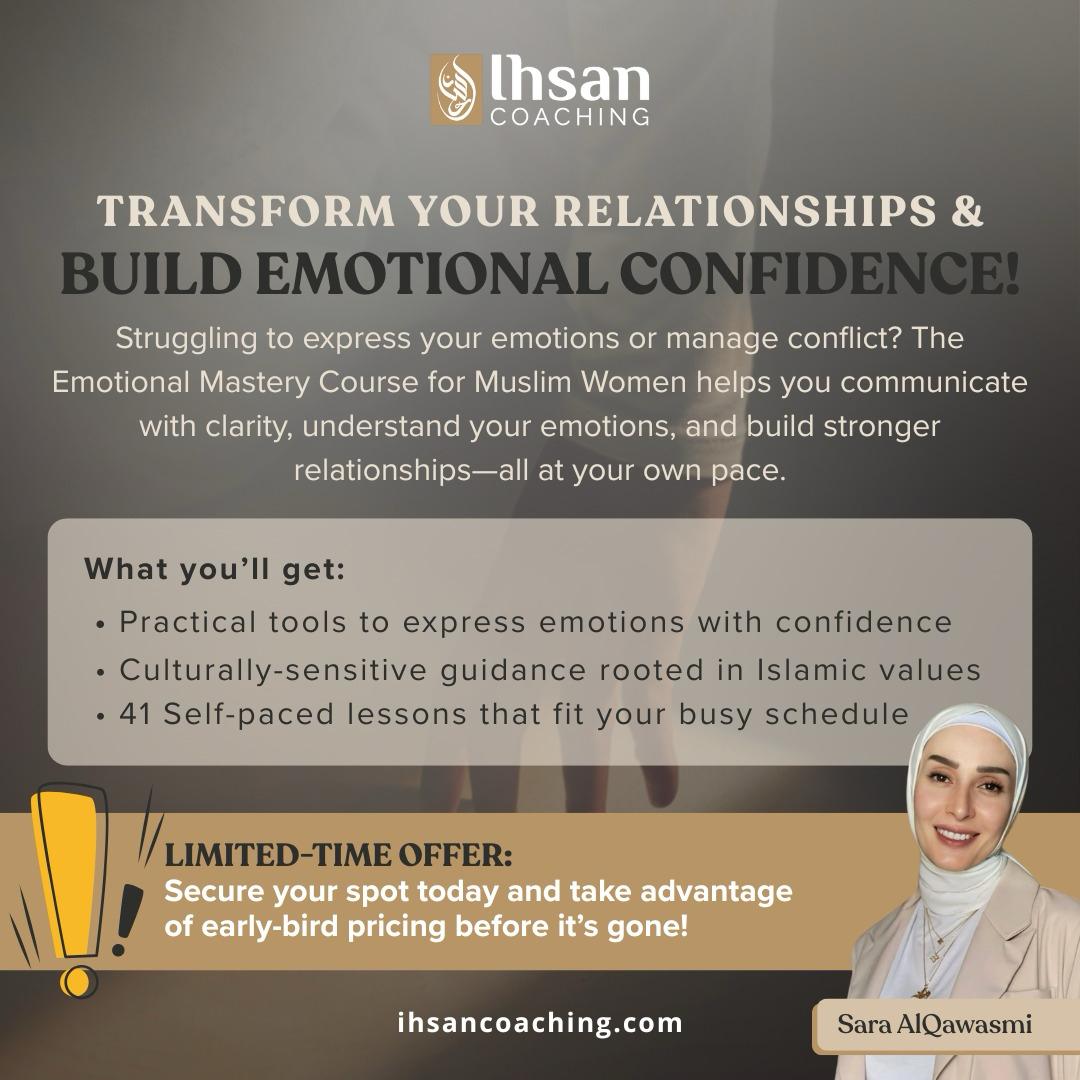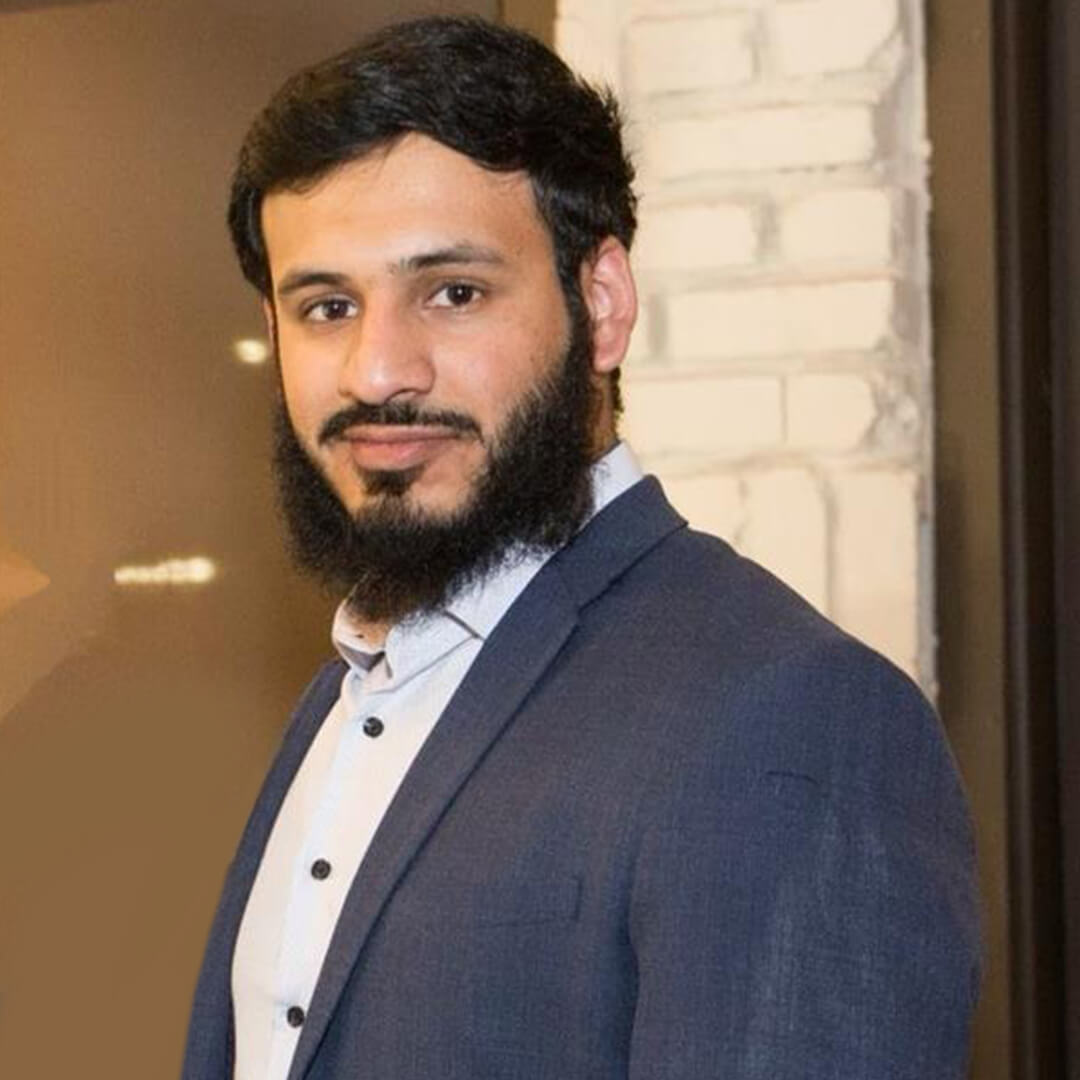We all talk about burnout in our careers, relationships, or parenting roles. But what happens when the burnout reaches your soul? When you feel distant from Allah despite praying, fasting, making dhikr, and doing all the “right” things? This state, often overlooked but painfully real, is called faith fatigue.
Let’s dive deeper to know what faith fatigue is, why it happens, how the Quran addresses it, and most importantly, how Islamic coaching can help reignite the flame of faith with compassion, clarity, and purpose.
What Is Faith Fatigue?
Faith fatigue is the emotional and spiritual exhaustion that comes from striving in your religion but still feeling disconnected from Allah, joyless in your ibadah (worship), or overwhelmed by guilt. It can feel like:
- You’re going through the motions but not feeling anything.
- You’re tired of constantly repenting and feeling like you’re failing.
- Dua feels dry. The Quran feels heavy. Salah feels rushed or mechanical.
- You feel like a hypocrite, “Why can’t I feel close to Allah?”
Faith fatigue is not a lack of belief, it’s often a sign that you’re trying, but trying with a drained heart.
What Causes Faith Fatigue?
Several internal and external pressures can contribute to spiritual burnout:
Perfectionism in Deen
Believing you must be flawless in your worship leads to constant self-judgment. You feel like you’re never enough. Islam does not ask for perfection, it asks for consistency and sincerity.
Unchecked Guilt or Shame
Carrying the weight of past sins or failures can be crushing, especially when you misunderstand Allah’s mercy. Shaytan loves to trap believers in despair.
Comparing Your Journey
Watching others post about their spiritual highs on social media can make you feel inadequate.
Lack of Emotional Processing
You’re trying to heal your heart solely through rituals without addressing emotional wounds or trauma.
Disconnection from Meaning
You’re performing rituals without internal reflection or connection to the “why.”

What the Quran Says About Spiritual Lows
Even the Prophets (peace be upon them) experienced emotional exhaustion:
“My Lord, indeed, adversity has touched me, and You are the Most Merciful of the merciful.”
— Prophet Ayyub (AS), Surah Al-Anbiya’ (21:83)
“Until, when the messengers despaired and thought they were denied, then came to them Our victory.”
— Surah Yusuf (12:110)
These verses show that feeling low is part of human experience. Allah never expects us to be spiritually high all the time. He honors our struggle.
How to Begin Healing Faith Fatigue
Faith fatigue requires more than just “praying harder.”
1. Return to the Mercy of Allah
“Say, ‘O My servants who have transgressed against themselves, do not despair of the mercy of Allah.'”
— Surah Az-Zumar (39:53)
Instead of punishing yourself, reconnect with Allah’s mercy. Start with small duas like:
- “Ya Allah, soften my heart.”
- “Guide me back to You with love.”
2. Quality Over Quantity
If your ibadah feels mechanical, scale down and focus on presence. One sincere sajdah is more healing than 10 rushed rak’ahs.
3. Journal With Your Heart
Write to Allah. Tell Him everything. Let your raw emotions spill. This act in itself is a form of dua.
4. Practice Self-Compassion
Speak to yourself the way you would speak to someone you love. Would you call them a failure if they were struggling spiritually? No.
5. Rebuild Slowly
Healing faith is like healing a muscle. Start slow. Focus on one act of worship that brings you calm and connection, even if it’s just one ayah or one tasbeeh a day.
How Islamic Coaching Helps with Faith Fatigue
Islamic coaching creates space for you to explore your spiritual and emotional life without judgment. Here’s how it helps:
➜ Unpacks Spiritual Baggage
A coach helps you identify unhealthy beliefs you may carry about Allah, yourself, or worship.
➜ Aligns Deen with Emotional Healing
Sometimes emotional wounds block spiritual connection. Coaching bridges that gap.
➜ Supports You Without Shame
Unlike some environments where you’re made to feel guilty for your lows, coaching meets you with empathy and growth-oriented action.
➜ Revives Purpose
You revisit your “why” for your ibadah and connect it with your values, passions, and soul goals.
➜ Builds a Routine That Heals
Instead of overwhelming to-do lists of spiritual perfection, coaching helps you create a rhythm of worship that feels nourishing.
Reignite Your Iman with Ihsan Coaching
You don’t need to carry your spiritual exhaustion alone. At Ihsan Coaching, we understand that the journey back to Allah isn’t always linear. It takes heart, support, and space to be real.
Whether you’re dealing with faith fatigue, emotional numbness, or simply feeling lost in your spiritual journey, we’re here to walk with you. Our religious consultation and individual coaching have various sessions. Let’s rebuild your connection to Allah with gentleness, depth, and purpose.
Book a discovery call today, and let your healing begin.
FAQs
👉 Is it normal to feel disconnected from my faith even if I’m practicing regularly?
Yes, it’s completely normal. Spiritual laws are part of the human journey. Even Prophets went through moments of sadness or confusion. What matters is not perfection but continuing to seek Allah sincerely.
👉 Is feeling spiritually numb a sign of a weak Iman?
Not necessarily. It could be a sign of burnout, emotional pain, or unresolved trauma. Weak Iman is not about how you feel, it’s about whether you’re still turning to Allah, even in the struggle.
👉 How is coaching different from an Islamic class or halaqah?
Islamic classes are about learning deen. Coaching is about applying it to your life in a way that fits your emotional and spiritual state. It’s personal, goal-driven, and transformation-focused.
👉 Can I heal my connection with Allah even if I’ve made a lot of mistakes?
Absolutely. Allah’s mercy is greater than any mistake. The door to tawbah is always open. Coaching helps you internalize this truth and move forward with hope and strategy.
👉 What if I’m too exhausted to even start?
Start with one honest dua. That’s enough. The journey back to Allah doesn’t require you to be perfect, just willing. And if you need help, that’s what coaching is for.
Your heart hasn’t failed you. It’s just tired. Let’s help it rest, heal, and remember its source.






